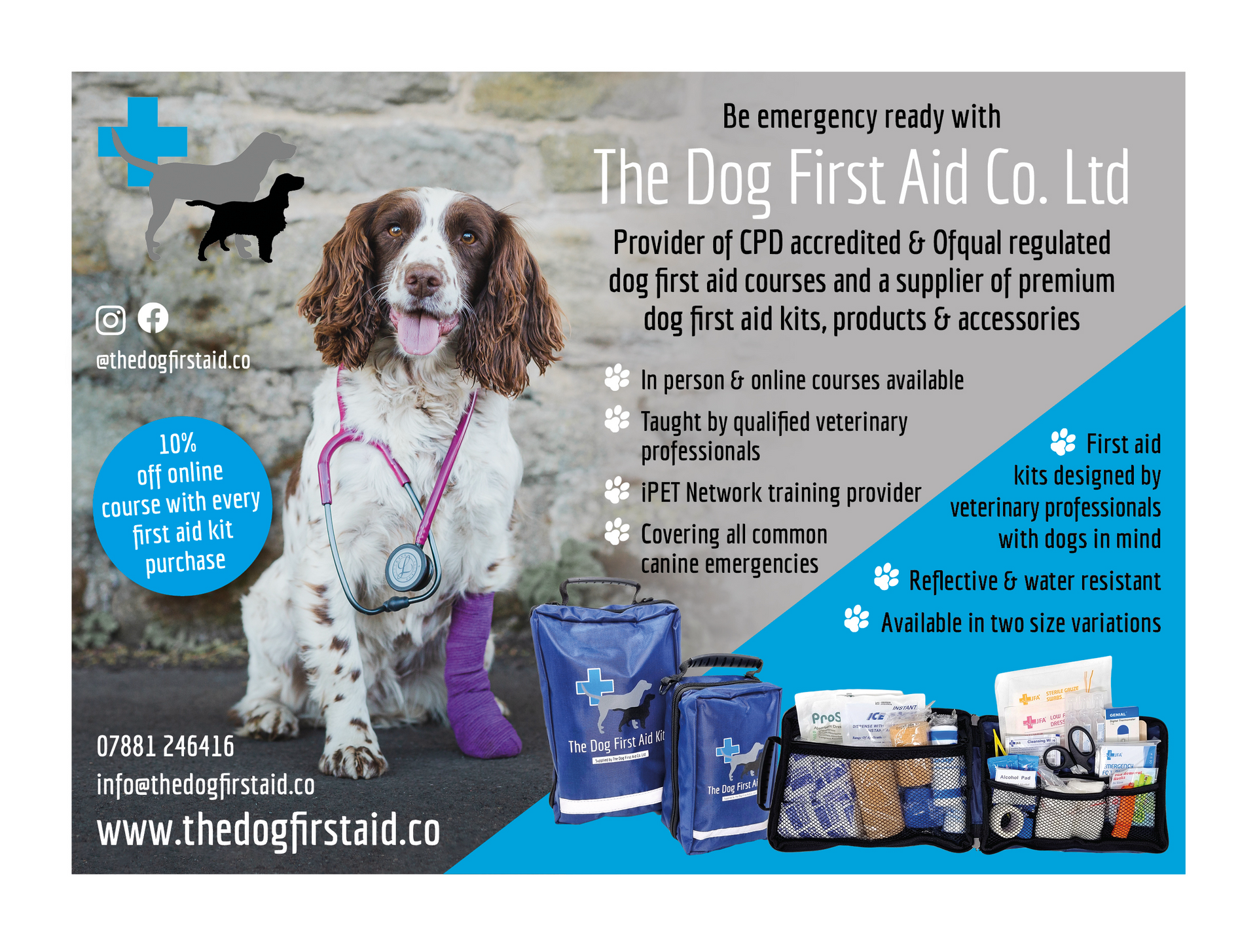Gundog First Aid
Accidents Happen
Accidents happen. They do. No matter how much we understand and appreciate our environment, sometimes things can go wrong. All dogs can get themselves into scrapes and suffer knocks, bumps and pulls, but working gundogs can be at an increased level of risk than your average family pet.
The intense training, the working day, the shooting season, the remote, sometimes hostile environments in which we handle them all add up.
First Aid Kits are great and an absolute necessity, and as with everything there are differences in quality and content. Who better then to ask for advice on what we need than an experienced Registered Veterinary Nurse with extensive knowledge and experience in dog first aid and also years of exerience working with and handling working dogs.
The kits from The Dog First Aid Co have been put together by highly experienced RVN Amy and contain pretty much everything you’d need in an emergency. We carry a small kit when training or working and have a large kit in the truck. If we’ve got our dogs, we’ve got our kits, we don’t leave home without them.
As good as the kits are, more important still is the knowledge and ability to be able to help your dog should something go wrong. Luckily here in the North East we have one of the best providers of Canine First Aid courses The Dog First Aid Co.
Courses are taught by a qualified team of registered veterinary nurses who hold extensive knowledge and experience in dog first aid. They are suitable for both the dog professional and owner, the CPD accredited & Ofqual regulated dog first aid course is a full day workshop covering all common canine emergencies. Their courses are guided by a visual presentation and workbook with practical bandaging and CPR sessions using training aids and specialist dog CPR manikins, as well as learning life saving skills using real dogs. They use a range of ‘real life’ scenarios, photographs and videos during the workshop combined with experience and discussions to enhance your learning and understanding of each topic.
Each course covers the following syllabus:
- Introduction to First Aid
- Primary Assessment
- Secondary Assessment
- Injuries to Sensory Organs
- Handling & Restraint
- Trauma
- Collapse
- Cardiopulmonary Resuscitation (CPR)
- Wounds
- Haemorrhage and Arterial Bleeds
- Fractures
- Bandaging
- Burns and Electrocution
- Insect Stings and Allergic Reactions
- Poisons and Common Toxins
- Adder Bites
- Choking
- Hypoglycaemia
- Hypo/Hyperthermia & Heat-Related Illness
- Drowning and Water Intoxication
- Seizures
- Gastric Dilation and Volvulus
- Shock
- Being Prepared
”What if…..?” Not, “If only….”
The question we should be asking ourselves, ‘what if……?’ and know what to do in each scenario.

